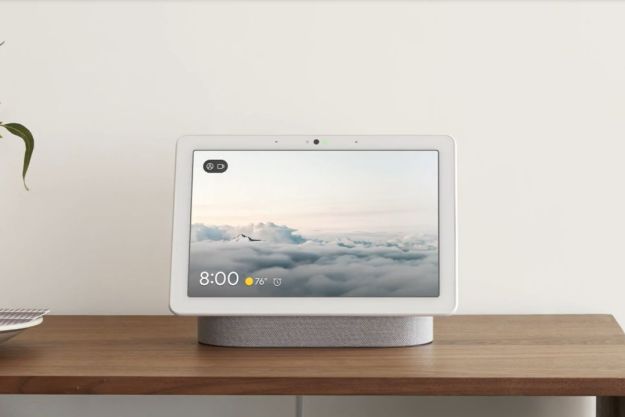When Amazon debuted the Amazon Echo Show last year, we knew it would only be a matter of time before Google introduced its own smart display. Our suspicions were partially proved correct earlier in 2018, when Google Assistant stole the show at CES 2018 and was effectively integrated into every smart display from every hardware maker in the industry. But while you can find a Lenovo smart display powered by Google Assistant, a Sony smart display powered by Assistant, and JBL smart display powered by Assistant, and an LG smart display (you guessed it, powered by Assistant), there actually isn’t a fully Google-produced piece of hardware. But that could all be changing.
As initially reported by Variety, Google’s Rishi Chandra made a few comments last week that “strongly suggest” that the tech giant would be releasing its very own Echo Show competitor. When Variety asked why Google opted to partner with other companies instead of first building its own device, the executive said simply, “It’s an emerging category,” and then more tellingly, “I’m not saying we are not going to do it.”
The Google Home has been around since 2016 and was quickly followed by the lower-priced Google Home Mini and the higher-tiered
To keep up with that evolution, Google is investing in “smart sound,” which uses artificial intelligence to adjust the sound quality of a speaker in real time. That means that your smart speaker (and smart assistant) could one day be able to optimize its volume and output based on what other audio is present in a room.
“The simple truth is we need to become a must-have product,” Chandra said. As Google continues to iterate upon Assistant and its growing portfolio of smart speakers, it may soon achieve that indispensable status.
Editors' Recommendations
- Home Depot’s Hubspace is a great way to start building your smart home
- Echo Hub vs. Echo Show 15: Which is the best smart home gadget?
- Echo Hub vs. Echo Show 8: Which is the best option for your smart home?
- Echo Show 8 vs. Echo Show 10: is the bigger device a better smart display?
- Echo Show 8 vs. Nest Hub: Does Amazon or Google offer the best smart display?


